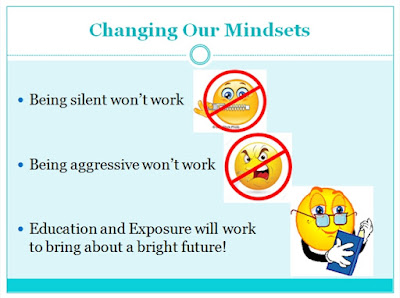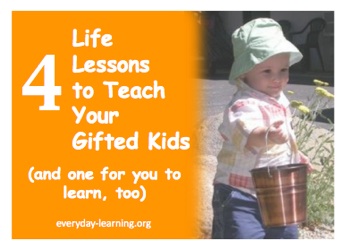Understanding the Asynchronous Development of the Gifted Child
By Stephanie NewittParent-Teacher Conferences are one week away in Gilbert Public Schools. These experiences are designed to be focused on discussing both the strengths and challenges of the child as well as goals to promote the child's growth and development. How can a parent of a gifted child prepare for these conferences with giftedness in mind?
One of the key points to understand in the growth and development of a gifted child is asynchrony. The National Association for Gifted Children (NAGC) describes asynchronous development as follows:
Asynchrony is the term used to describe the mismatch between cognitive, emotional, and physical development of gifted individuals. Gifted children often have significant variations within themselves and develop unevenly across skill levels. For example, a gifted child may be excellent in math, but poor in reading--or vice versa. Often, intellectual skills are quite advanced, but fine motor or social skills are lagging. Experts do not completely agree, but because asynchrony is so prominent in gifted children, some professionals believe asynchronous development rather than potential or ability, is the defining characteristic of giftedness.
Below are graphics that depict the contrast between typical and asynchronous development.
If you have ever looked at your intelligent child and wondered, exasperated, "What were you thinking?!?" then you have experienced an aspect of your child's asynchrony. It is common for adults to expect gifted children to do or feel what is greater than their natural capacity; however, would we want others to expect perfection of us on our first attempt? Our second? No. This would be extremely frustrating and would likely cause some anxiety.
Realizing that our gifted children have strengths and challenges respects them both as a child and as a human being. We should both support their strengths and areas of giftedness as well as provide support for their areas of weakness. Gifted children may have knowledge about certain subjects, but they lack wisdom. Wisdom is gained through life experience. Parents and teachers can mentor gifted children as these children gain experience by doing the following:
- Create an emotionally and physically safe environment in which the gifted child can take risks and fail.
- Create a family or classroom culture that FAIL means "First Attempt in Learning."
- Coach the gifted child through failure, encouraging him/her to discuss and explore how he/she could handle the situation differently next time.
- Praise for effort more than outcome.
As the adults closest to the gifted child realize that asynchrony is a normal part of growing up gifted and provide strategies of support, the gifted child is more likely to develop the skills necessary to be successful in life.
Preparing for Parent Teacher Conferences
As you see areas of asynchrony in your gifted child, discuss these with your child's teacher. Share that you understand that asynchrony is typical in the development of the gifted child and ask what supports are available to support your child's growth in their areas of deficit.
Part 2: Tools to Articulate the Needs of the Gifted Child
Part 3: Emotional Intelligence
Part 4: Understanding the Visual-Spatial Learner
Part 4: Understanding the Visual-Spatial Learner
Source: “Asynchronous Development.” Asynchronous Development | National Association for Gifted Children, www.nagc.org/resources-publications/resources/social-emotional-issues/asynchronous-development. Accessed 3 Oct. 2017.
Graphics created by Stephanie Newitt
Stephanie Newitt is a co-founder of Gilbert Supporters of the Gifted and a member of the GPS Gifted Education Parent Council Executive Committee. She has a B.S. in Family Sciences and is the mother of four gifted children, ages 14-24.
Stephanie Newitt is a co-founder of Gilbert Supporters of the Gifted and a member of the GPS Gifted Education Parent Council Executive Committee. She has a B.S. in Family Sciences and is the mother of four gifted children, ages 14-24.


























